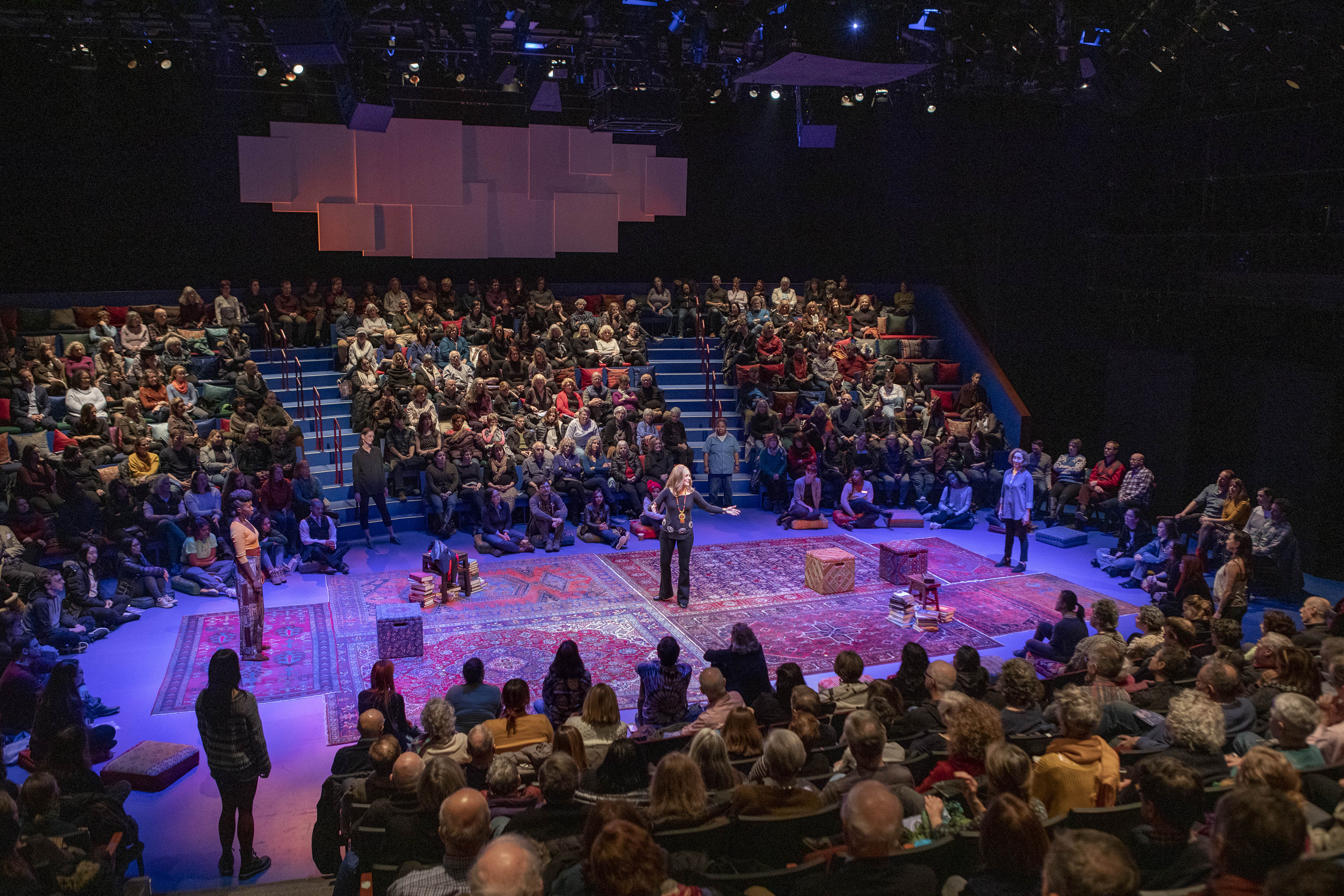Photo: ©APrioriPhotography.com
During the second act of a performance of "Gloria: A Life," at the Loeb Drama Center earlier this week, the women of HubWeek were struck by the power of convening. We found ourselves in a talking circle together with hundreds of other women where anyone could share her reflections and experiences without fear of retribution. This powerful moment exemplified the profound change that Gloria and the feminist movement have inspired.
For those of you who haven't yet experienced this moving piece from American Repertory Theater, we'll share some themes from the new play that spoke clearly to us:
Everyone's story deserves to be told.
At this play, staged in-the-round, the unspoken and verbal message offered right from the start is the importance of being physically present with one another to share our stories. Gloria has always given credit to others when explaining her rise as a feminist leader. Sharing our experiences with one another and bonding over challenges is one of the easiest ways to identify solutions that can change the world. Through the telling of Gloria's story, we as an audience are inspired to also tell our own.
Finding your voice is easier with the help of others.
It took Gloria until her mid-thirties to realize that she could — and should — speak up about the injustices she and other women experienced. As a writer and a dancer, talking publicly was not something she came by naturally. She credits more experienced women in the feminist and civil rights movements with helping her find her voice, particularly black women like Dorothy Pitman Hughes and Florynce Kennedy, with whom she frequently spoke.
You're not crazy. We all are.
When Gloria's male colleagues told her not to get involved with "those crazy women" she was reporting on, she realized it was too late — she was already one of them. And she was ready to stand with them to fight for equality for every woman she knew. The burgeoning women's movement helped many women feel "seen" through the transformative power of community, and this sisterhood enabled each woman to be stronger together than on her own.
Thank those who call you a "bitch."
While lots of women were thankful to Gloria for her work bringing women's issues to light and creating feminist magazine Ms., not everyone celebrated her accomplishments. Sometimes, the criticism hurt deeply, but Gloria learned to appreciate those who disagreed with her. They only fueled her fire and toughened her skin. Members of the audience at our performance echoed this sentiment, sharing that when they've been labeled with the word, "bitch," they've been proud of how strongly their words and actions have resonated.
Family — whether chosen or biological — is everything.
Gloria spent (and still spends) much of her time on the road, speaking to crowds about her life story and inspiring women to action. She never had biological children, but she talks about her "chosen family" as the community she built around herself. She was deeply influenced by her relationship with her parents as well, and comes to understand that, like many women, she is living her mother's unfulfilled life. She has certainly made the most of it.
The play's conclusion invites each of us to commit acts of rebellion, large or small, so we'll leave you with one question: What outrageous thing are you going to do today?
"Gloria: A Life" is playing at the Loeb Drama Center in Cambridge, MA through March 1. Tickets can be purchased here.
